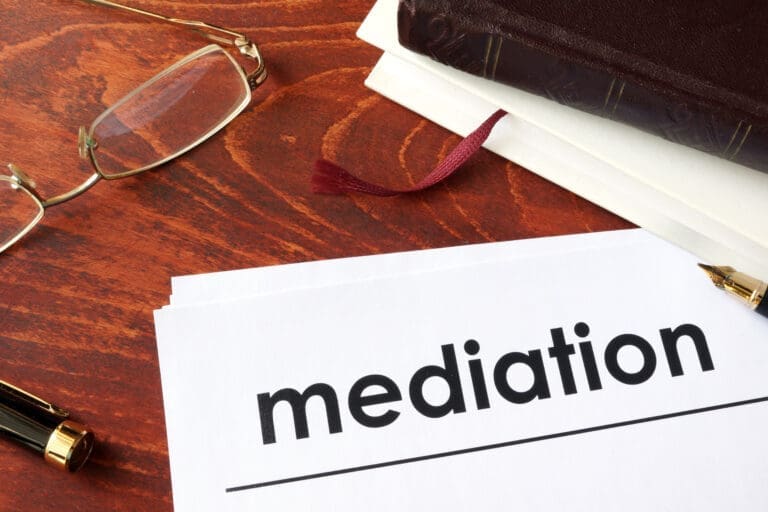
En due process rights of the mentally ill in the criminal justice system are a cornerstone of American constitutional law, reflecting both the nation’s commitment to individual liberty and the practical realities of public safety. As the number of individuals with mental illness intersecting with the legal system continues to rise, the need for clarity, fairness, and compassion in the application of due process rights has never been more pressing. The legal landscape is complex, shaped by federal and state statutes, landmark Supreme Court decisions, and evolving public attitudes toward salud mental and criminal responsibility.
At the heart of due process is the recognition that every individual, regardless of mental status, is entitled to fair treatment under the law. This principle is enshrined in the Constitution and reinforced by decades of jurisprudence. For those with mental illness, due process rights serve as both a shield against arbitrary deprivation of liberty and a framework for ensuring that justice is administered with both rigor and humanity. The criminal justice system must walk a careful line-protecting society from dangerous behavior while safeguarding the rights of those whose mental illness may impair their judgment, understanding, or ability to participate meaningfully in their own defense.
Procedural due process is the first line of defense for mentally ill defendants. It requires that before any deprivation of liberty-such as involuntary commitment or incarceration-there must be notice, an opportunity to be heard, and a fair hearing before an impartial tribunal. In the context of involuntary civil commitment, the Supreme Court has held that individuals are entitled to many of the same protections as criminal defendants: the right to counsel, the right to remain silent, the right to confront witnesses, and a heightened standard of proof-often clear and convincing evidence-to justify confinement. These safeguards are designed to prevent wrongful deprivation of liberty, recognizing that the consequences of commitment are profound and enduring.
En right to a competency assessment is another critical protection. The law recognizes that a defendant must be able to understand the proceedings against them and assist in their own defense. If a defendant’s mental illness renders them incompetent, the trial must be postponed until competence is restored. This is not merely a procedural formality; it is a substantive guarantee that the process is legitimate and that the outcome is just. In some jurisdictions, specialized salud mental courts have emerged to address these cases, bringing together legal and clinical expertise to craft solutions that balance accountability with treatment and rehabilitation.
The insanity defense is perhaps the most well-known intersection of mental health and criminal law. Rooted in the principle that criminal liability requires both a wrongful act and a culpable mind, the insanity defense allows for acquittal when a defendant’s mental illness prevents them from understanding the wrongfulness of their actions or conforming their conduct to the law. While controversial, this defense is essential to the integrity of the justice system, ensuring that punishment is reserved for those who are truly blameworthy. The American Law Institute’s Model Penal Code has provided a widely adopted framework for this defense, emphasizing both cognitive and volitional impairments.
Yet the availability and application of the insanity defense vary widely by state, and public skepticism remains high. Some states have adopted “guilty but mentally ill” verdicts, which critics argue are ineffective and unjust, as they often lead to incarceration without adequate treatment. The debate continues over whether diminished capacity-where mental illness impairs but does not eliminate criminal responsibility-should mitigate punishment or serve as a complete defense.
Capital punishment raises the stakes even higher. The Supreme Court has recognized that executing individuals who are incompetent at the time of execution serves no legitimate purpose and is constitutionally impermissible. Nonetheless, mentally ill defendants often face significant disadvantages in capital cases, from difficulty understanding their rights to challenges in presenting mitigating evidence. The risk of wrongful execution is compounded by systemic issues such as inadequate access to mental health experts and the persistent stigma surrounding mental illness. Calls for a moratorium on the death penalty for the seriously mentally ill reflect growing concern that due process is systematically lacking in these cases.
Transfer of prisoners to mental institutions is another area fraught with due process concerns. Commitment to a mental institution can result in significant deprivations of liberty, often under conditions more restrictive than prison. The process must be accompanied by strict procedural safeguards, including independent psychiatric evaluation and periodic review, to prevent erroneous or indefinite confinement. The imprecision of psychiatric diagnosis and the potential for administrative expediency underscore the need for vigilance in protecting the rights of the mentally ill.
Diversion programs and mental health courts represent a promising shift in policy. Rather than funneling individuals with mental illness into jails and prisons, these programs aim to redirect them toward treatment and support. The goal is not only to reduce recidivism but also to address the root causes of criminal behavior. Diversion can occur at multiple points in the system-before arrest, after arrest, or even post-conviction. These initiatives require collaboration among law enforcement, prosecutors, defense counsel, and mental health professionals, and they depend on adequate resources and community support.
Despite these advances, significant challenges remain. The criminal justice system is often ill-equipped to address the complex needs of the mentally ill. Overcrowded jails have become de facto psychiatric facilities, and many defendants cycle in and out of the system without ever receiving appropriate care. The lack of training among legal professionals, limited access to mental health services, and persistent stigma all contribute to outcomes that fall short of the ideals of due process and justice.
Recent legislative trends reflect a growing recognition of these problems. States are enacting laws to improve screening for mental illness, enhance access to treatment, and streamline competency restoration processes. There is increasing support for policies that prioritize diversion and reentry, aiming to connect individuals with mental health conditions to care rather than punishment. However, the implementation of these reforms is uneven, and resource constraints continue to limit their reach.
En intersection of mental health and gun rights presents another constitutional challenge. Federal and state laws restrict firearm possession for individuals with a history of involuntary commitment or mental disability-related adjudications, balancing individual rights against public safety. The courts have generally upheld these restrictions, recognizing the state’s interest in preventing harm while insisting on due process protections in the adjudication of mental illness.
Landmark cases such as Lessard v. Schmidt and O’Connor v. Donaldson have shaped the modern doctrine of due process for the mentally ill. Lessard established that individuals facing involuntary commitment are entitled to the same constitutional protections as criminal suspects, including notice, counsel, and a jury trial. O’Connor held that a state cannot constitutionally confine a non-dangerous individual who is capable of living safely in freedom, underscoring the principle that liberty cannot be curtailed without compelling justification.
En role of attorneys in this landscape is both vital and demanding. Effective representation of mentally ill defendants requires not only legal acumen but also an understanding of mental health conditions and the ability to navigate a fragmented system of care. Attorneys must advocate for their clients’ rights at every stage, from initial screening to sentencing and beyond. The well-being of legal professionals themselves is also at stake, as the stress of representing vulnerable clients can take a toll on mental health.
Stigma and discrimination remain persistent barriers. The public often views mentally ill defendants with suspicion or fear, and juries may be influenced by misconceptions about dangerousness or culpability. Education and training for all participants in the justice system-law enforcement, judges, attorneys, and jurors-are essential to ensuring that due process rights are respected and that outcomes are fair.
Juvenile defendants with mental illness present unique challenges. The Supreme Court has recognized that children are less culpable than adults and that their age, maturity, and mental status must be considered in determining punishment. The execution of juveniles is now prohibited, and courts are increasingly attentive to the need for age-appropriate assessments and interventions.
The future of due process for the mentally ill in the criminal justice system will depend on continued vigilance, innovation, and a willingness to confront difficult questions. How do we balance the rights of the individual against the needs of society? What is the proper role of psychiatry in the courtroom? How can we ensure that treatment, not punishment, is the default response to mental illness? These are not easy questions, but they are essential to the ongoing project of justice.
In sum, the due process rights of the mentally ill in the criminal justice system reflect a commitment to fairness, dignity, and the rule of law. They demand that we look beyond labels and diagnoses to the humanity of every defendant, recognizing that justice is not served by expediency or indifference. As the legal system continues to evolve, it must remain anchored in the principles of due process, ensuring that the most vulnerable among us are protected, not punished, by the law.
Citations:
- Congressional Research Service Report on Due Process and Involuntary Civil Commitment
- Legal Analysis of Mental Health and Criminal Responsibility in Law Review
- SAMHSA Guide: Civil Commitment and Mental Health Care Continuum
- Death Penalty and People with Mental Illnesses: Policy Overview
- Support for the Insanity Defense in Mental Health Cases
- Position Statement: Death Penalty and Mental Illnesses by MHA
- Impact of Deinstitutionalization on Mental Illness in the Justice System
- Critical Review: The Criminal Legal System and Mental Illness
- NAMI Guide to Mental Illness and the Criminal Justice System
- Due Process Rights for the Mentally Ill: Lessard v. Schmidt
- NAMI 2024 State Legislation Brief: Mental Health and Criminal Justice
- NIH Article: Mental Illness and the Criminal Justice System
- Texas Appleseed: Mental Health Judicial Monographs
- OJP Abstract: Transfer of Prisoners to Mental Institutions
- Mental Health America Position: Support of the Insanity Defense
- Attorneys.Media Mental Health Video Resources
- Legal Perspectives on Mental Health and Criminal Justice Intersection
- NCSC Behavioral Health Alerts: September 2024
- Access to Guns and the Mentally Ill: Legal Considerations
- NYSBA: Lawyers Addressing Mental Health in Criminal Justice
- Faculty Scholarship: Criminal Law and Mental Health Analysis
- Minnesota Journal of Law, Science & Technology: Mental Health in Justice
- The Conservative Case for Jail Reform
- Vanderbilt Law Review: Criminal Justice and Mental Health
- Urban Institute: Processing and Treatment of Mentally Ill in Justice System
- National Affairs: Conservatives and Criminal Justice
- Trends in Mental Health and Criminal Justice: Academic Article
- Congress.gov CRS Products: Involuntary Civil Commitment Report
- Right on Crime: Conservative Criminal Justice Reform Perspectives
- Psychiatric Services: Mental Health and Criminal Justice Interface
- EKU Honors Thesis: Mental Illness and Justice System
- Law & Liberty: National Conservative Case for Justice Reform
- Maryville University Blog: Mental Health and Criminal Justice
- Prison Policy Initiative: Winnable Criminal Justice Reforms for 2025
- Justice Action Network: Federal Policy Agenda 2025
- Brennan Center: Project 2025 Criminal Justice Plan Analysis
- NAMI Issue Brief: Trends in Mental Health and Criminal Justice Policy 2025
- NAMI Policy Priorities: Mental Health Treatment While Incarcerated
- NAMI 2023 State Legislation Brief: Criminal Justice
- John Jay Impact: New Responses to Mental Illness in Justice System
- Prison Policy Initiative: Pie Chart of U.S. Incarceration 2025
- Congress.gov: CRS Report on Involuntary Civil Commitment
- Post University Blog: Spotlight on Criminal Justice Issues
- CSG Justice Center: State Criminal Justice and Behavioral Health Priorities 2025
- Sentencing Project Fact Sheet: Top Trends in Criminal Justice Reform
- Sentencing Project Newsletter: Criminal Legal Reform Trends 2024
- MHA Position Statement: Mental Health Courts
- Cardozo Law Review: The Criminal Legal System and Mental Illness
- Constitution Annotated: Fourteenth Amendment Due Process and Mental Health
- Psychiatric Services: Mental Health and Criminal Justice Policy
- NIH Public Access: Mental Illness in the Criminal Justice System
- UVA Law News: Constitutional Right to Insanity Defense
- Health and Human Rights Journal: Procedural Accommodation for Disabilities in Justice
- Cornell Law Wex: Mental Health Legal Overview
- Attorneys.Media: Due Process Legal Insights
- Attorneys.Media: Crime Control Model Overview
- AAIDD Position Statement: Criminal Justice and Disability
- Campbell Law Review: Criminal Law and Mental Health
- Attorneys.Media: Psychiatry Legal Resources
- Attorneys.Media: Mental Health Video Resources (English)
- Disability Rights Tennessee: Erasing Mental Health Stigma in Legal Profession
- Attorneys.Media: Mental Health Legal Topics
- HeinOnline: ABA Journal Article on Mental Health and Law








